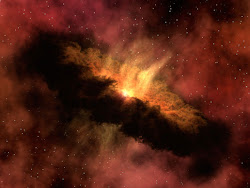Origins 1(2):52-55 (1974). — editorial
Many scientists sincerely feel that there is a serious conflict between scientific methodology involving ideas of natural cause and effect, repeatability and predictability, and the concept of a God who can overrule in nature and thus negate these ideas. This conflict is considered so serious that at times the statement is made that a scientist cannot pursue serious study in his discipline while believing in a God who can interfere with the course of nature. It is felt that the consistency and predictability of science disappear in the presence of an unpredictable God. This, no doubt, is part of the reason why some scientists reject the concept of God, while others define Him as an impersonal organizing force or entity. We would like to propose that this apparent conflict has a reasonable solution.
Let us suppose, as we believe, that God established the laws of nature by which science analyzes and operates. Does this necessitate a conflict between God and science? It would seem not. The conflict seems a little more probable when one considers miracles, such as those described in the Bible, where it appears that God interferes with the normal course of nature. These do not exclude scientific analysis as long as some of the laws we understand are still operating. To state it differently: even when something we do not fully comprehend takes place, the event should be amenable to some scientific analysis, as long as one of the laws of nature is still in operation and provided the tools of science are sufficiently adequate.
In addition to this, some philosophers, including Alfred North Whitehead (1950, pp. 8-19), have pointed out that science developed in the Western world in part because of the Judeo-Christian concept of a rational and reasonable God. Science did not develop, or developed very poorly, in other civilizations, because the concepts of capricious gods precluded the development of science. The very stable civilizations, such as those of India and China, certainly provided the environment for intellectual pursuits; nevertheless science advanced in the Western world, probably because of the idea of a rational God in conjunction with the disciplined concepts of the Judeo-Christian tradition. Emphasizing this, Whitehead (1950, p. 19) states: "My explanation is that the faith in the possibility of science, generated antecedently to the development of modern scientific theory, is an unconscious derivative from medieval theology." Thus one can conclude that there is a conflict between science and a capricious God, but there is good agreement between science and a God who is the author of the laws of science. The two kinds of gods must not be confused.
Another accusation leveled by some scientists against those believing in a God who is active in the affairs of nature is that whenever one runs into an unsolved problem, he only has to invoke the power of God to answer the problem. However, that a God can act at a level beyond man's understanding does not seem to be a sound reason to reject Him. Also, the same type of criticism can be leveled at a non-theistic scientific approach which relies on time to answer improbable events. This is implied in the statement by the noted physiologist George Wald (1954): "Given so much time, the 'impossible' becomes possible, the possible probable, and the probable virtually certain. One has only to wait: time itself performs the miracles."
A problem has developed in modern evolutionary theory due to reliance on time for improbable events. Given enough time, anything could happen; hence no matter what has been interpreted as the past history for life, it could have occurred. And since anything could have occurred, there is no way to show that it did not. In particular, evolution has models for advancing, for regressing, for jumping gaps, for annihilation, etc. For all types of data there is a model to explain it. The problem has been well stated by two evolutionary biologists, Birch and Ehrlich (1967): "Our theory of evolution has become . . . one which cannot be refuted by any possible observations. Any conceivable observation can be fitted into it. It is thus 'outside of empirical science' but not necessarily false. No one can think of ways in which to test it."
Reliance on time for improbable events has also run into some difficulty when quantitatively evaluated. For instance, Eden (1967), in the book Mathematical Challenges to the Neo-Darwinian Interpretation of Evolution, has calculated that in 5 billion years (an assumed age of the Earth) one would expect to get only 2 genes in the right order in the common bacterium Escherichia coli if the organism were spread over the surface of the earth in a layer 2 centimeters thick. This does not include time for evolving the genes, a much more complex process, or for putting other genes in order; and one also wonders where there would be enough space for several hundred thousand other organisms which would also be evolving. This study and a number of others (Hull 1960; Eden 1967; Schützenberger 1967; Salisbury 1969 and 1971, etc.) strongly indicate that the amount of time that the geological time scale allows is totally inadequate for the improbable events required by modern evolutionary theory.
It would seem that the concept of arriving at truth through science in combination with a rational God is most reasonable. This is preferable to relegating all questions to a capricious and unpredictable God, since there appears to be a conflict between that type of a God and the degree of orderliness one sees in nature. This also seems preferable to trying to answer all questions through a scientific process which excludes God. Not only does this appear arbitrary, but as pointed out above, the godless system is quite inadequate to explain many questions, especially those of origins. One could argue that since God can be used to answer all questions, to employ Him weakens one's objectivity. But objectivity points to a God and the argument loses further significance in view of the type of God described in the Bible, a reasonable and rational God who is usually predictable, yet who is powerful enough to answer the problems which science by itself cannot answer. This appears to be the best approach to truth.
REFERENCES
- Birch, L. C. and Ehrlich, P. R. 1967. Evolutionary history and population biology. Nature 214:349-352.
- Eden, Murray. 1967. Inadequacies of neo-Darwinian evolution as a scientific theory. In Paul S. Moorhead and Martin M. Kaplan, eds. Mathematical challenges to the neo-Darwinian interpretation of evolution, pp. 5-12. The Wistar Institute Symposium Monograph Number 5.
- Hull, D. E. 1960. Thermodynamics and kinetics of spontaneous generation. Nature 186:693-694.
- Salisbury, Frank B. 1969. Natural selection and the complexity of the gene. Nature 224:342-343.
- Salisbury, Frank B. 1971. Doubts about the modern synthetic theory of evolution. The American Biology Teacher 33:335-338.
- Schützenberger, Marcel P. 1967. Algorithms and the neo-Darwinian theory of evolution. In Paul S. Moorhead and Martin M. Kaplan, eds. Mathematical challenges to the neo-Darwinian interpretation of evolution, pp. 73-75. The Wistar Institute Symposium Monograph Number 5.
- Wald, George. 1954. The origin of life. Scientific American 191 (August):44-53.
- Whitehead, A. N. 1950. Science and the modern world. Macmillan and Co., London.










0 comments:
Post a Comment